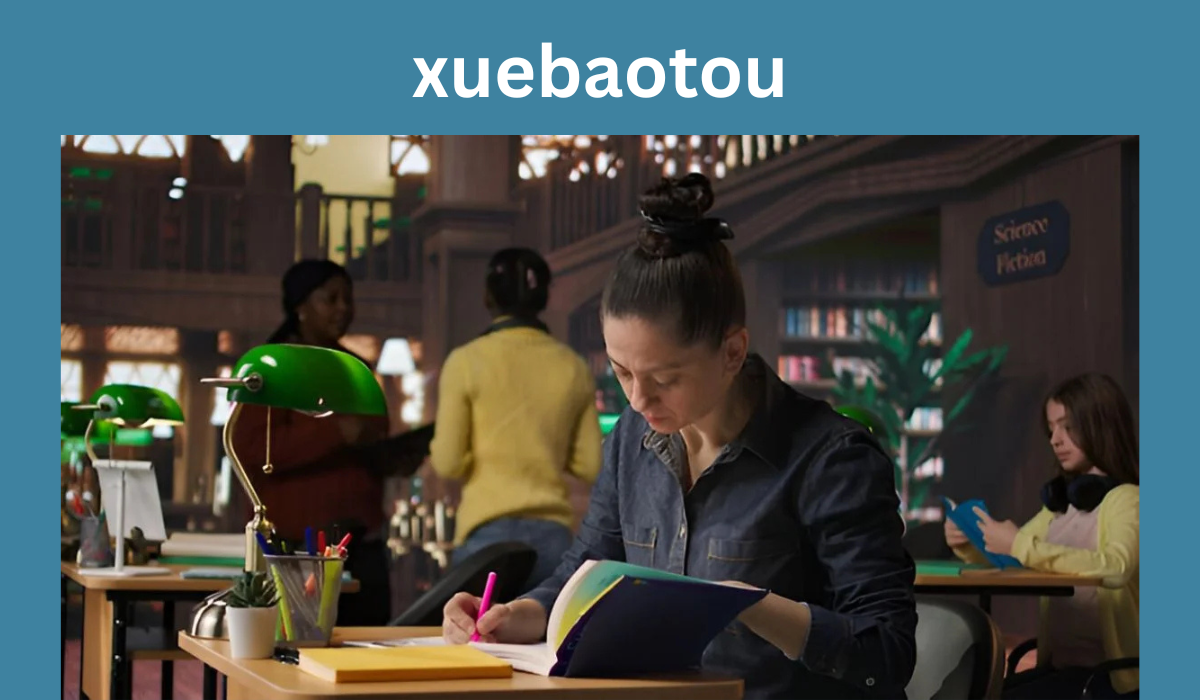The term “xuebaotou” has become increasingly prevalent in discussions about Chinese education and social dynamics. This concept represents far more than academic excellence—it embodies a complex cultural phenomenon that shapes how millions of students, parents, and educators approach learning and success.
Xuebaotou, literally translating to “academic overachiever” or “study tyrant,” refers to students who demonstrate exceptional academic performance through intense dedication to their studies. These individuals often sacrifice social activities, hobbies, and sometimes even sleep to maintain their position at the top of their class. While the term might sound negative to Western ears, it carries nuanced meanings within Chinese society.
Understanding xuebaotou requires examining its roots in Chinese educational philosophy, its impact on contemporary student life, and how technology is reshaping this traditional concept. This exploration reveals insights into one of the world’s most competitive educational systems and its broader cultural implications.
The Historical Roots of Xuebaotou Culture
The concept of xuebaotou stems from China’s deep-rooted reverence for education and scholarly achievement. This cultural foundation dates back over 2,000 years to the imperial examination system, which determined government positions based on academic merit rather than birthright or wealth.
The imperial examinations, known as keju, created a meritocratic system where intense studying could transform a peasant’s child into a high-ranking official. This historical precedent established education as the primary pathway to social mobility, embedding the belief that academic success directly correlates with life success.
Modern xuebaotou culture reflects these ancient values, adapted to contemporary educational structures. The gaokao, China’s national college entrance examination, serves as today’s equivalent of the imperial examinations. Students spend years preparing for this single test, which largely determines their university placement and future career prospects.
This historical context explains why xuebaotou behavior is often viewed positively within Chinese society. Parents and teachers frequently celebrate students who demonstrate such dedication, seeing them as embodying traditional virtues of perseverance and self-discipline.
Cultural Significance and Social Perception
Within Chinese society, xuebaotou represents both admiration and concern. These students are often celebrated for their discipline and academic achievements, yet they also face scrutiny for their lifestyle choices and social development.
The positive perception of xuebaotou stems from Confucian values that emphasize hard work, respect for learning, and self-improvement. Families often view having a xuebaotou child as a source of pride and validation of their parenting approach. Teachers may point to these students as examples for their classmates to follow.
However, growing awareness of mental health and well-being has sparked discussions about the potential negative consequences of extreme academic focus. Some educators and parents now question whether the xuebaotou lifestyle promotes unhealthy behaviors and unrealistic expectations.
The social media portrayal of xuebaotou has also evolved. While some platforms celebrate their achievements, others highlight the personal costs of such intense academic pursuit. This dual perspective reflects broader societal debates about educational priorities and student welfare.
How Xuebaotou Impacts Modern Educational Trends
The influence of xuebaotou culture extends far beyond individual students, shaping educational policies, teaching methods, and family dynamics throughout China. This impact manifests in several key areas of modern education.
Educational Policy and Reform
Chinese educational authorities have increasingly recognized the need to address the pressures associated with xuebaotou culture. Recent policy reforms aim to reduce academic burden while maintaining educational excellence. These changes include limits on homework hours, restrictions on weekend tutoring, and emphasis on holistic development.
The “double reduction” policy, implemented in 2021, specifically targets the intensive study culture that produces xuebaotou students. By limiting after-school tutoring and reducing homework loads, policymakers hope to create more balanced educational experiences.
Teaching Methodologies
Educators are adapting their approaches to accommodate both high-achieving students and those who struggle with the pressure to become xuebaotou. Progressive teachers now emphasize collaborative learning, critical thinking, and creativity alongside traditional rote memorization.
Some schools have introduced programs specifically designed to support students exhibiting xuebaotou tendencies, helping them develop social skills and stress management techniques while maintaining their academic excellence.
Family Dynamics and Parenting
The xuebaotou phenomenon has significantly influenced Chinese parenting styles. Many families structure their entire lives around supporting their child’s academic pursuits, from hiring tutors to relocating near better schools.
However, growing awareness of mental health issues has led some parents to reconsider their approach. They seek to balance academic achievement with emotional well-being, recognizing that extreme xuebaotou behavior might have long-term negative consequences.
Xuebaotou and Technology Integration
Technology has fundamentally transformed how xuebaotou culture manifests in modern education. Digital tools and platforms have created new opportunities for academic achievement while also presenting unique challenges.
Digital Learning Platforms
Online education platforms have enabled xuebaotou students to access advanced courses and resources previously unavailable. These platforms often cater specifically to high-achieving students, offering accelerated programs and specialized content.
The gamification of learning through educational apps appeals to xuebaotou students’ competitive nature. Leaderboards, achievement badges, and progress tracking features reinforce their drive for academic excellence.
Social Media and Academic Performance
Social media platforms have created new venues for xuebaotou students to showcase their achievements and study methods. Study-focused social media accounts document intensive study schedules, neat notes, and academic accomplishments.
These platforms also facilitate the sharing of study techniques and resources among like-minded students. Online communities of xuebaotou students provide mutual support and motivation, creating virtual study groups that extend beyond traditional classroom boundaries.
AI and Personalized Learning
Artificial intelligence technologies are being integrated into educational systems to support high-achieving students. AI tutors can provide personalized instruction at the pace and depth that xuebaotou students require.
These systems can identify areas where even top-performing students need improvement, offering targeted practice and advanced challenges that traditional classroom settings might not provide.
Challenges and Criticisms
The xuebaotou culture faces significant criticism from various sectors of Chinese society. Mental health professionals, educators, and some parents raise concerns about the sustainability and consequences of extreme academic focus.
Mental health issues, including anxiety, depression, and social isolation, have been linked to the intense pressure to maintain xuebaotou status. The single-minded focus on academic achievement can prevent students from developing essential life skills and emotional intelligence.
Critics argue that xuebaotou culture promotes unhealthy competition and perfectionism. Students may develop unrealistic expectations for themselves and others, leading to difficulties in personal relationships and professional environments.
The emphasis on standardized testing and grades may also limit creativity and innovative thinking. Some educators worry that xuebaotou students excel at memorization and test-taking but struggle with problem-solving and original thought.
The Future of Xuebaotou Culture
As Chinese society continues to evolve, so too will the concept of xuebaotou. Educational reforms, changing social values, and technological advances will likely reshape how academic achievement is perceived and pursued.
Future educational systems may find ways to harness the positive aspects of xuebaotou dedication while addressing the associated challenges. This might involve redefining academic success to include emotional intelligence, creativity, and social skills alongside traditional metrics.
The integration of technology will continue to influence how xuebaotou culture develops. Virtual reality, AI tutors, and personalized learning platforms may create new opportunities for academic excellence while potentially reducing some of the stress associated with traditional intensive study methods.
Global perspectives on education and well-being will also impact how Chinese society views xuebaotou culture. International research on student mental health and alternative educational approaches may influence future policies and practices.
Balancing Excellence with Well-being
The xuebaotou phenomenon represents both the strengths and challenges of Chinese educational culture. While it produces students with exceptional academic capabilities and strong work ethics, it also raises important questions about student welfare and holistic development.
Understanding xuebaotou culture requires appreciating its historical roots while recognizing the need for evolution. As China continues to modernize its educational system, finding the balance between academic excellence and student well-being will remain a crucial challenge.
The future success of Chinese education may depend on preserving the positive aspects of xuebaotou dedication while creating supportive environments that nurture all aspects of student development. This evolution will likely influence educational approaches far beyond China’s borders, offering insights for educators worldwide grappling with similar challenges.
You May Also Like:





